PEMF for Bone Healing: How to Use PEMF to Speed Up Bone Recovery

Welcome to my guide on how to use PEMF for bone healing and speed up your bone recovery!
I’m Marco Gentile, a wellness expert with over a decade of experience helping people optimize their health and assisting them in their journey to longevity.
Wondering how to speed up bone recovery? Research indicates that PEMF therapy can enhance bone healing rates, potentially reducing healing time by up to 50%.
In this article, we’ll dive into the science behind the benefits of Pulsed Electromagnetic Field (PEMF) therapy and how it supports bone recovery. I’ll also introduce you to my top-recommended PEMF devices for effective healing.
Plus, to make your journey even simpler, I’ll provide a proven weekly plan to incorporate PEMF seamlessly into your routine.
Looking for a drug-free way to heal your bones? You’re in the right place!
🔬The Science Behind PEMF for Bone Healing
If you’re here, you probably already know about Pulsed Electromagnetic Field (PEMF) therapy. It does what its name suggests. It uses electromagnetic waves to help your body heal.
PEMF accelerates athletic recovery, improves sleep, relieves muscle and back pain, and helps to reduce stress and anxiety. Many healthcare providers are also using PEMF to help with arthritis and plantar fasciitis management. Even dogs can benefit from PEMF.
Think of it as giving your body’s natural repair systems a gentle nudge in the right direction. These electromagnetic fields go through your skin and into your tissues. There, they interact with your cells.
This interaction helps start and boost the healing process.
It’s like giving your cells a motivational coach, pushing them to perform at their best and speed up the healing process!
🦴How PEMF Helps Bones Heal. What Research Shows
PEMF has been approved by the US Food and Drug Administration (FDA) for the treatment of non-union fractures back in 1979.
That alone is serious proof of its effectiveness. But there’s plenty of scientific evidence demonstrating that PEMF works for accelerating the healing of broken bones.
In 2017, a clinical study of 181 individuals with established nonunion fractures found that patients treated with PEMF for more than 3 hours/day achieved an 80% success rate, compared to only 36% in those treated less than 3 hours/day.
A 2018 study published in the International Journal of Biomaterials has shown that PEMF therapy may stimulate the activity of osteoblasts. These are the cells that build new bones in your body. When electromagnetic pulses activate these cells, they make more bone material. They also deposit calcium better.
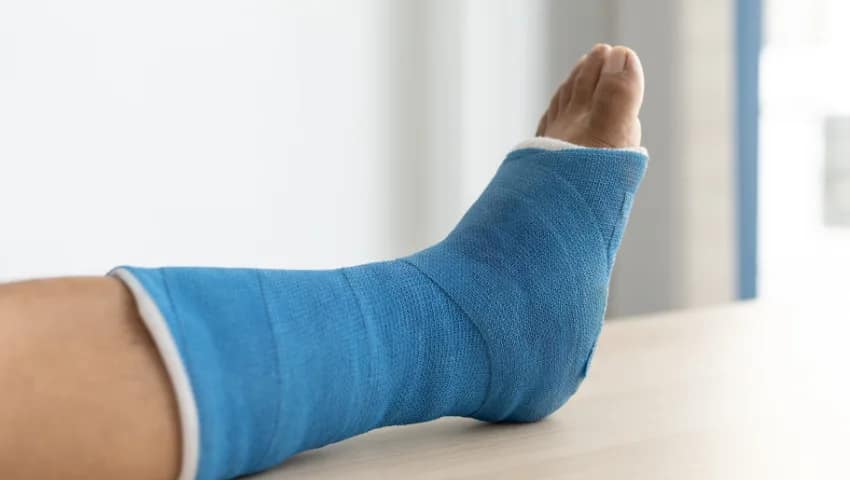
Another 2021 study suggests that electromagnetic fields can support the production of proteins and growth factors. These are also vital for bone development. The study provides molecular mechanism validation for PEMF’s clinical effects.
A 2016 study published in Orthopedic Research and Reviews tested PEMF on 1,382 patients with fractures that hadn’t healed properly. It found that using PEMF therapy led to significant improvements in healing. Overall, 89.6% of these patients experienced successful healing with PEMF treatment.
In 2008, a key study published in the European Journal of Orthopaedic Surgery & Traumatology found that 76% of nonunion fractures, which didn’t heal after nine months of other treatments, improved with PEMF therapy. The study also provides clinical data on infection scenarios, expanding PEMF’s validated use cases.
The Benefits You’ll Notice
People who use PEMF therapy for fractures often experience:
- Quicker recovery times compared to traditional methods alone
- Less pain and inflammation around the fracture site
- Improved nerve function and reduced discomfort
- Better blood flow to the injured area, which brings more oxygen and nutrients
- Reduced muscle loss during recovery
- Improved range of motion as healing progresses
Which Fractures Benefit the Most?
While PEMF can help with most types of bone injuries, it really shines when dealing with:
- Stress fractures (common in athletes and runners)
- Nonunion fractures that haven’t healed despite other treatments
- Fractures in people with osteoporosis, where bone healing is naturally slower
- Complex fractures that might otherwise require surgery
- Infected fractures
PEMF for Bone Healing – Do’s and Don’ts – Infographic
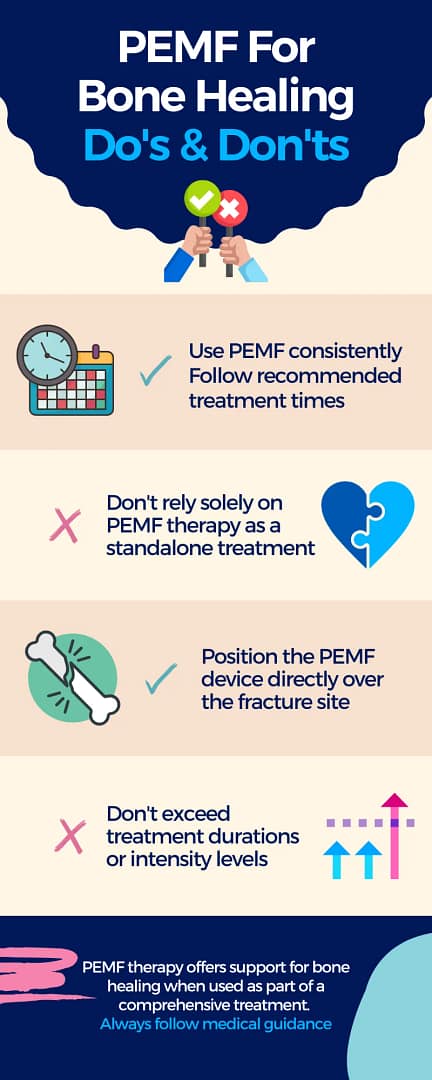
How Long Until You See Results?
Most PEMF treatment plans include daily sessions. These can last from 30 minutes to several hours. The duration depends on the device and your injury.
Many people start noticing reduced pain within a few weeks, but the actual bone healing process takes time.
Factors that influence how quickly you’ll see results include:
- Your age (younger people typically heal faster)
- The severity and location of your fracture
- Your overall health and nutrition
- Whether you’re taking medications that might affect bone healing
For a typical fracture, you might use PEMF therapy for 3-6 months, with regular checkups to monitor your progress.
Here is a first-hand experience I want to share with you.
I still remember when Jenn came to see me after fracturing her wrist. At 65, with osteoporosis already challenging her, the doctors had warned she might need twice the normal healing time. She was worried but determined to recover.
Let’s try something different,” I suggested, recommending a PEMF device for just 35 minutes each day alongside her calcium and vitamin D supplements. Jenn trusted the process and stuck with it.
When we attended her six-week checkup, even her doctor was pleasantly surprised. The imaging showed her bones healing about 30% faster than they’d expected for someone with her condition. I could see the relief wash over her face at the news.
The journey wasn’t complete, of course – healing bones takes time. But by the three-month mark, watching her regain full mobility in her wrist with minimal pain felt like a significant victory for both of us.
Those consistent daily PEMF sessions really seemed to give her body the extra support it needed during a critical healing window.
Best PEMF Devices for Bone Healing
Looking to heal a fractured bone with PEMF therapy? You’ll want a device that can target your specific injury site. The more precisely you can direct those electromagnetic pulses to your injured area, the faster and more effective your healing journey might be.
Let me walk you through your options in simple terms so you can find the best PEMF device for bone healing without spending money on features you don’t need.
I’ll help you navigate the options available so you can make a smart choice based on your specific healing needs.
1. PEMF Mats
PEMF mats provide full-body treatment, making them great for overall wellness, relaxation, and recovery. However, if you’re dealing with a fractured bone, you might need a more targeted device to focus on the injury site.
That said, mats are still the most popular option because they offer a wide range of benefits beyond just bone healing, so they’re always a smart investment for long-term health.
Wondering which PEMF mat to get? I’ve ranked the 26 Best PEMF Mats of 2025. Here are the top 3 you need to know about:
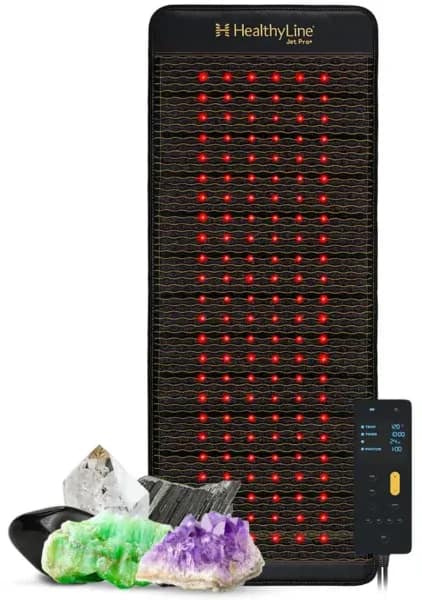
HealthyLine JET

OMI PEMF Beyond

Therasage TheraPro
2. PEMF Pads
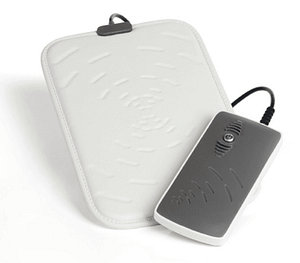
PEMF pads are ideal for targeting your therapy to a specific area of the body, which is exactly what you need when treating a fractured bone with PEMF therapy.
These smaller options are more budget-friendly than full-size mats, easy to slip into a bag or take with you to work, and many models even offer battery power for true on-the-go treatment wherever you happen to be.
Are you wondering if a PEMF pad might be the right solution for your healing journey? Take a look at my article on the best PEMF pads, where I’ve done the research to help you find one that perfectly matches your specific needs and healing goals.
Curious about the final result? Check them out here:
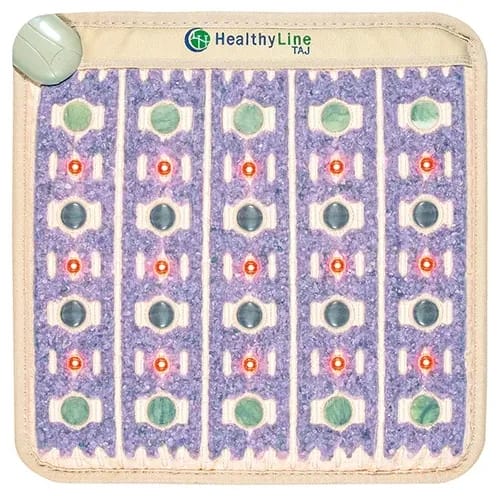
HealthyLine TAJ Pad

OmniPEMF NeoRhythm
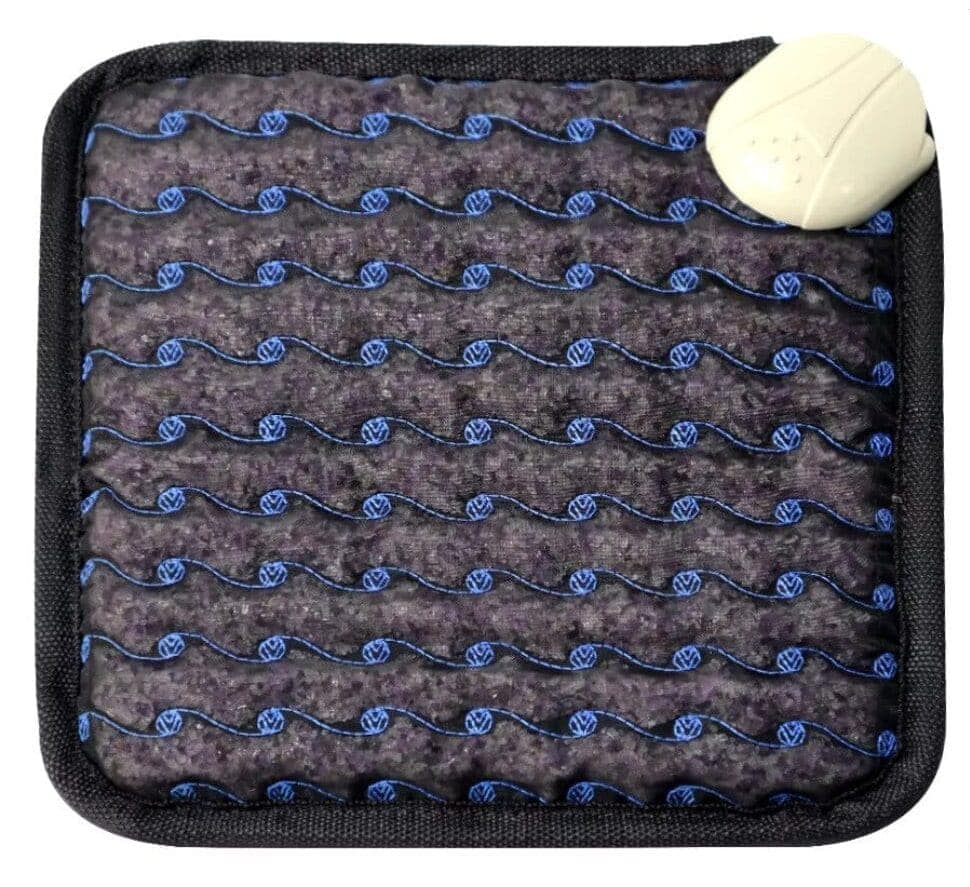
ApeBorn Fitness PEMF Infrared Mat
3. Portable PEMF Wearables
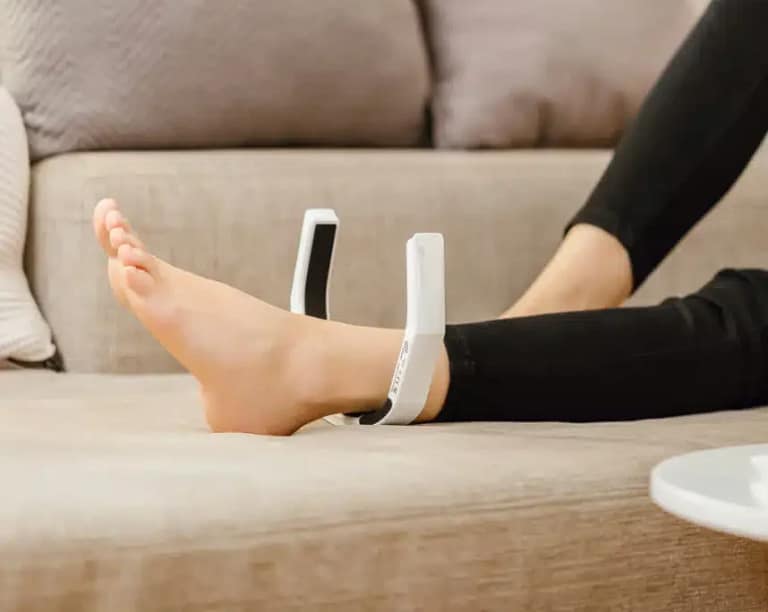
PEMF wearables provide a targeted approach to healing, ensuring that therapy is delivered exactly to the area in need. These convenient devices can be attached to specific spots, such as a broken bone, to focus the treatment precisely where it counts.
When it comes to healing bones, there are several options available. Bands are highly effective, as are rings. The NeoRhythm is another option that offers precise targeting for localized issues like fractures or broken bones.
These devices are small, lightweight, and battery-operated, allowing you to go about your day while benefiting from therapy.
Want to dive deeper into the world of PEMF Wearables? Check my buying guide on the best portable PEMF devices and wearables. I’m sure you’ll find the device that’s best for you! Here’s the result of my review:

OmniPEMF NeoRhythm

OMI PEMF PowerBand

Haelo Symphony One
📅 PEMF for Bone Healing: My Weekly Therapy Schedule
Healing bones with PEMF therapy doesn’t have to be complicated. I’ve developed a weekly schedule that makes the entire process effortless, guiding you step by step to ensure you get the best possible results.
Are you new to PEMF? Let me quickly define frequency and intensity:
-
Frequency, measured in Hertz (Hz), refers to the number of electromagnetic pulses delivered per second by a PEMF device. In simple terms, it determines how fast the pulses occur.
-
Intensity represents the strength of the electromagnetic field emitted by the PEMF device. Most devices use Gauss (G) and MicroTesla (µT) in their user manual and controllers or phone apps. So I have included both in the table.
Instead of trying to figure everything out on your own, just follow the plan and let your body do the rest. Within two weeks, most people begin to see noticeable improvements. No more wondering about timing, frequency, or technique—everything is structured for you to maximize your healing.
| Day | Session(s) | Frequency | Intensity | Duration | Notes |
|---|---|---|---|---|---|
| Monday | 1 (Morning) | 15 Hz | 200 µT 2 G | 30 min | Combine with light weight-bearing exercises. |
| Tuesday | 1 | 20 Hz | 150 µT 1.5 G | 45 min | Best combined with calcium-rich meal post-session. |
| Wednesday | Rest | – | – | – | Allow bone remodeling and recovery. |
| Thursday | 1 (Evening) | 10 Hz | 100 µT 1 G | 30 min | Avoid strenuous activity after therapy. |
| Friday | 1 | 15 Hz | 200 µT 2 G | 60 min | Long session; ideal for non-union fractures or delayed healing cases. |
| Saturday | Rest | – | – | – | Recovery day; maintain hydration and a balanced diet. |
| Sunday | 2 (morning & evening) | 12 Hz | 150 µT 1.5 G | 30 each | Split sessions for enhanced stimulation; include stretching exercises. |
-
Perform this schedule for 8–12 weeks, depending on the severity of the fracture and the healing progress.
-
After the primary cycle, reduce the frequency to 2–3 sessions per week, using the same parameters. Continue maintenance for an additional four weeks or until full functional recovery.
-
For older adults or those with osteoporosis, prioritize lower frequencies (10–15 Hz) and shorter sessions (30 minutes).
-
For younger individuals or athletes, higher frequencies (20–25 Hz) and longer sessions may be more effective.
Flexible Guidelines for Daily Integration
If rigid routines aren’t your thing, you’re in luck!
This is a flexible approach to working PEMF therapy into your daily schedule while still getting excellent results. It’s more of a gentle guide than a mandatory routine.
The real benefit of this approach is how naturally it integrates into your everyday rhythm.
- Use PEMF therapy at least 5 days weekly, ensuring one rest day.
- Choose a time of day when you can relax without interruptions—mornings or evenings are ideal.
- Stick to a 10–20 Hz frequency range, with intensities between 100–200 µT (1–2 G).
- Limit each session to 30–60 minutes, adjusting based on comfort and response.
- Combine therapy with:
- Light physical activity, such as walking or stretching.
- A diet rich in calcium, magnesium, and vitamin D to support bone health.
- Adequate hydration throughout the day.
Some people thrive with morning treatments to energize their day, while others prefer evening sessions to wind down. It’s just like finding your perfect exercise time; whatever fits your body’s needs and your personal schedule is the right choice for you!
FAQ’s
While PEMF is generally safe, it’s important to note that, like any medical treatment, it could come with rare side effects or be unsuitable for certain conditions. For more information on potential PEMF contraindications, we’ve detailed everything in a separate article. Feel free to check it out if you have questions.
PEMF therapy offers a non-invasive alternative or supplement to traditional bone healing methods. Studies have shown that PEMF can enhance bone healing rates, potentially reducing healing time by up to 50%.
Additionally, PEMF therapy has been associated with increased structural integrity of bone and cartilage, leading to improved bone quality. However, individual responses can vary, and it’s essential to consult with a healthcare professional to determine the most appropriate treatment plan for your specific situation.
🔬Scientific Evidence

ABOUT THE AUTHOR
Marco Gentile
Marco Gentile (CHC, CMT, CTP, CETS) is a seasoned wellness professional with over 10 years of experience helping clients achieve optimal health and longevity. Currently, he works at the Burke Williams Spa – Health, Wellness & Fitness Center in L.A., where he continues to inspire and support individuals on their wellness journeys.







